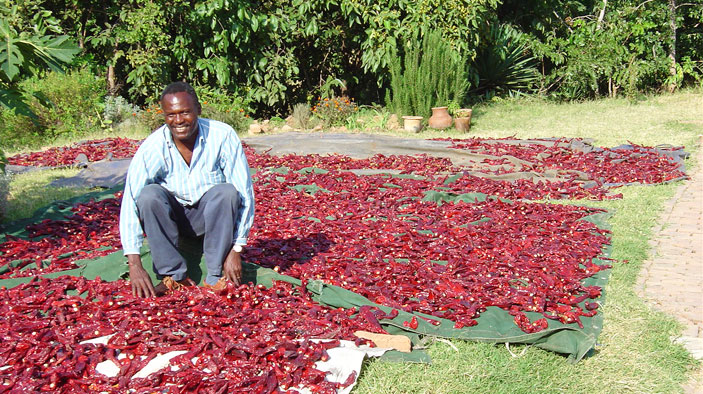Tanzania—Private Enterprise Support Activities (PESA I, II)
Client: U.S. Agency for International Development
Duration: 2002-2007
Region: Sub-Saharan Africa
Country: Tanzania
Solutions: Economic Growth
Active in six regions that account for a third of Tanzania’s population, the Private Enterprise Support Activities (PESA) project focused on association development, encouraging farmers to form producer associations or to strengthen existing groups that pool resources and improve their sales position. The associations also served as vehicles for DAI-led training in marketing, bargaining, and financial management skills. Ultimately, PESA was about empowering Tanzanian farmers who work hard, but needed development assistance to realize their potential. By September 2006, the DAI team had provided technical assistance to 170 associations, more than 90 of them newly formed, with a combined membership of 24,000. These strengthened producer associations served as the foundation for sustainable development in governance, business, and technical capacity.

Sample Activities
- Carry out subsector and competitive studies to identify constraints, opportunities, and intervention options; form and strengthen business associations.
- Improve access to credit for input and working capital.
- Create market linkages for producers with agrobusinesses and buyers.
- Build the capacity of producer associations and apex marketing associations through business and technical training.
Select Results
- Approximately 24,000 farmer families were affiliated with 181 farmer associations formed or revitalized with PESA assistance. Core crops cultivated by these farmers include citrus, paddy, vegetables, sugarcane, paprika, onions, and sunflowers.
- Farmers came to understand market dynamics and how to engage the market. Participating farmer families saw a five-fold increase in average annual income for core cash crops. Incomes increased from Tanzanian shillings (TZS) 284,000 (among 5,844 member families) in 2003 to TZS 1,523,000 (among 22,396 member families) in 2007.
- For the 12 months ending July 2007, participating farmers sold TZS 4 billion in cash crops.
- Assisted farmers to form 11 regional apex associations, whose membership is composed of the 181 farmer and trade associations. These associations help farmers access markets, increase value, provide business services, and manage bulk input purchases.
- Formed public-private alliances at the district level to democratize and devolve governance and resolve policy issues.
- Promoted district-level stakeholder alliances that embraced both direct economic and crosscutting issues, such as HIV/AIDS mitigation, youth unemployment, and environmental balance.
RELATED CONTENT:
Regional—AL-INVEST Next Programme Management Unit and EU-LAC Trade and Investment
The AL-INVEST Next Programme and its EU-LAC Trade and Investment Component promote a more dynamic and sustainable economic relationship between the EU and the countries of Latin America and the Caribbean.
Read More